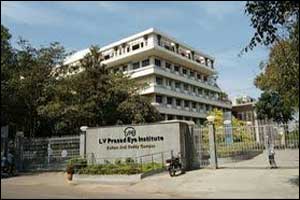- Home
- Medical news & Guidelines
- Anesthesiology
- Cardiology and CTVS
- Critical Care
- Dentistry
- Dermatology
- Diabetes and Endocrinology
- ENT
- Gastroenterology
- Medicine
- Nephrology
- Neurology
- Obstretics-Gynaecology
- Oncology
- Ophthalmology
- Orthopaedics
- Pediatrics-Neonatology
- Psychiatry
- Pulmonology
- Radiology
- Surgery
- Urology
- Laboratory Medicine
- Diet
- Nursing
- Paramedical
- Physiotherapy
- Health news
- Fact Check
- Bone Health Fact Check
- Brain Health Fact Check
- Cancer Related Fact Check
- Child Care Fact Check
- Dental and oral health fact check
- Diabetes and metabolic health fact check
- Diet and Nutrition Fact Check
- Eye and ENT Care Fact Check
- Fitness fact check
- Gut health fact check
- Heart health fact check
- Kidney health fact check
- Medical education fact check
- Men's health fact check
- Respiratory fact check
- Skin and hair care fact check
- Vaccine and Immunization fact check
- Women's health fact check
- AYUSH
- State News
- Andaman and Nicobar Islands
- Andhra Pradesh
- Arunachal Pradesh
- Assam
- Bihar
- Chandigarh
- Chattisgarh
- Dadra and Nagar Haveli
- Daman and Diu
- Delhi
- Goa
- Gujarat
- Haryana
- Himachal Pradesh
- Jammu & Kashmir
- Jharkhand
- Karnataka
- Kerala
- Ladakh
- Lakshadweep
- Madhya Pradesh
- Maharashtra
- Manipur
- Meghalaya
- Mizoram
- Nagaland
- Odisha
- Puducherry
- Punjab
- Rajasthan
- Sikkim
- Tamil Nadu
- Telangana
- Tripura
- Uttar Pradesh
- Uttrakhand
- West Bengal
- Medical Education
- Industry
LV Prasad Eye Institute sets up state of the art eye care services

Hyderabad: L V Prasad Eye Institute (LVPEI) has been at the forefront in setting up state of the art eye care services to cater to all sections of the society. The latest one for this global eye care institute is a new unit that produces special type of contact lenses (Boston Scleral lenses) that was inaugurated by Chief Guest Mr Gene Guselli, President & CEO, BostonSight, Massachusetts. This new facility is established in collaboration with the Boston Foundation for Sight, USA, with the goal of increasing access to specialized forms of contact lenses for the treatment of corneal problems, avoiding corneal transplantation in some cases. Prof Deborah Sweeney, Pro Vice-chancellor (Research & Innovation), Western Sydney University, Australia was the Guest of Honour.
Mr Gene Guselli, President & CEO, BostonSight, said, ”This partnership creates an opportunity for our organizations to combine our collective expertise, and provide affordable access to visually impaired, underserved populations around the world. The Boston Foundation for Sight is privileged to be working with such a prestigious organization as LV Prasad Eye Institute to make this a reality.”
BostonSight PROSE (prosthetic replacement of the ocular surface ecosystem) treatment uses custom designed and fabricated prosthetic devices to restore visual function, support healing, reduce symptoms and improve quality of life for patients suffering from complex corneal disease. PROSE treatment uses scleral lens prosthetic devices that are FDA approved for therapeutic indications. A 2010 Boston Foundation for Sight survey showed that 80% had significant success with BostonSight PROSE treatment.
Speaking on this new development, Dr Gullapalli N Rao, Founder and Chair, L V Prasad Eye Institute said, “For many of the thousands of patients suffering from complex corneal disease, PROSE may be the ideal, and sometimes only treatment capable of restoring visual function and reducing eye pain and light sensitivity. Till date, the benefit was limited in India because of the high cost. The new manufacturing facility has been created to make it available to all sections of society.”
Last year, LVPEI had provided contact lenses to over 2000 patients who had conditions that would benefit from the new scleral lens design. With the manufacturing unit now in India, the potential benefit to patients across the country and Asia, who will now be able to access these state-of-the-art lenses at a lower cost, will be huge.
Scleral lenses are commonly known for their use in patients with Stevens-Johnson syndrome, keratoconus, corneal grafts, chemical and thermal burn injuries, and ocular pemphigoid, among other uses. However, the increased spotlight on scleral lenses has led to their use in more number of patients with severe dry eyes due to Sjögren’s syndrome, autoimmune diseases, chronic graft-versus-host disease, post-LASIK dry eye, and irregular astigmatism.
Optometrists work with patients, their support systems and other medical providers to understand each patient’s specific needs and reach treatment goals together. Patients continue to be followed up by their primary eye care provider during and after treatment.


